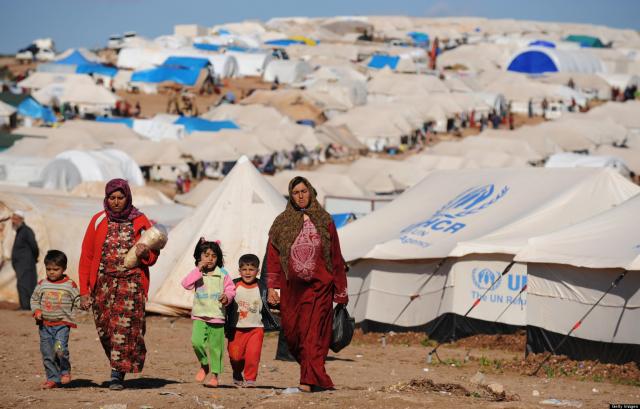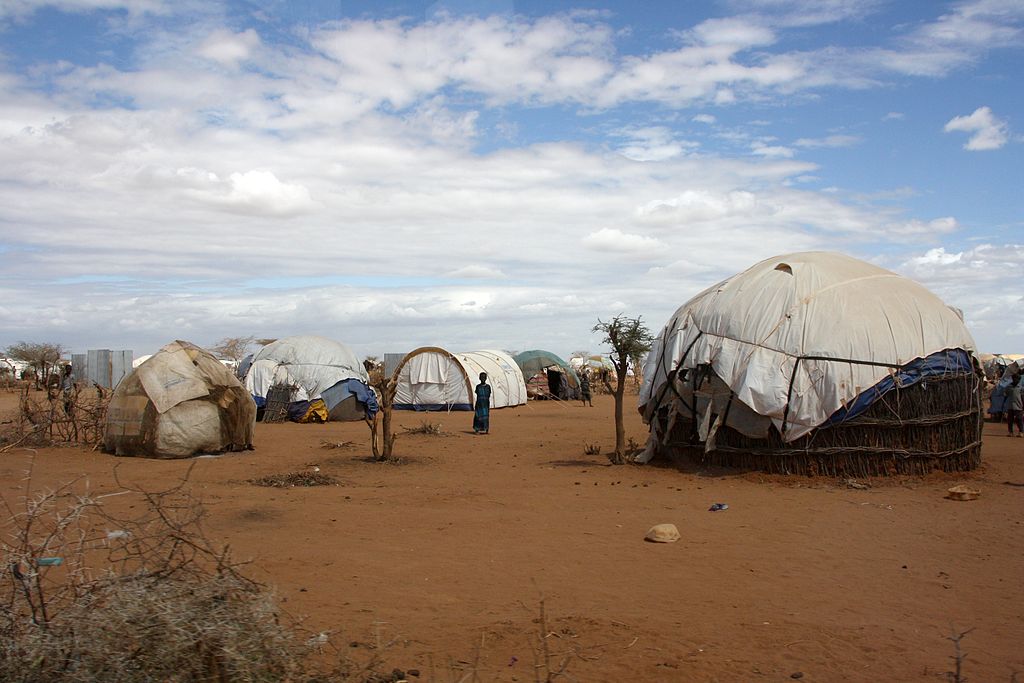The Syrian refugee crisis reached Canadian shores last week, dominating headlines for the current federal election campaign.
Liberal Leader Justin Trudeau criticized the Conservative government for ignoring repeated calls to resettle more refugees from Syria and other nations torn by war and internal strife. Prime Minister Stephen Harper argued that admitting more refugees from the region forms only one component of a comprehensive solution, which should also focus on maintaining the military campaign against ISIS.
What do our program editors think?
How Should Canada Respond to the Syrian Refugee Crisis?
Jonas Becker: Lend a Helping Hand
Program Editor, Procurement
One of the major problems with the current refugee crisis is the basic terminology being employed; there exists an important distinction between immigrants and refugees. In contrast to the former, the latter cannot return to their country of origin because of a serious threat to their lives.
The barbarous conflict that has been ravaging Syria and Iraq for the better part of five years firmly places the thousands fleeing into Europe as refugees without choice. The outpouring of generosity from select European countries, Germany foremost among them, shows the stubborn persistence of an inherently life-affirming human trait: empathy.
All efforts should be made to welcome the refugees, give them a place of safety in which to recover, and make arrangement for their sustainability over a short-term period. Once the conflict is over, the refugees can apply through traditional channels for permanent citizenship or return to help rebuild their country. Many Bosnians and Kosovars from the conflicts of the 1990s who were given refugee status in Europe have since returned home.
Offering a helping hand in another’s hour of need is a fundamentally human principle that should be upheld. It does not entail the total breakdown of necessary immigration procedures that protect a country from very real societal, economic, and security threats.
Kelly Rahardja: Less Talk, More Action
Program Editor, A View From Ukraine
Helping refugees flee a volatile land is a noble effort this country should be willing to undertake during this time of crisis. However, an open door policy is not a realistic long-term solution, and will neither benefit the refugees nor Canada in the future. In order to determine an effective policy, the refugee crisis must be viewed logically rather than emotionally.
While it is only natural to sympathize with the plight of refugees, humanitarian aid alone will not suffice. To get to the root of the problem, Canadian officials must be willing to curb the volatility in Syria and Iraq, where the majority of these refugees originate. Whether through increased bilateral action or joint military operations through alliances like NATO, military action against ISIS will be necessary.
This will not only help reinstate displaced populations to their rightful land, but benefit international security and set the course for future Canadian foreign policy. In the troubling times of today, the refugee crisis is merely the tip of the iceberg, and Canadians must be ready to face many uncharted threats. This situation is the perfect chance for the incoming federal government to demonstrate to the world Canada’s ability to carve a distinct path for itself in foreign affairs. Even if other countries are unwilling to take increased military action, Canada should not wait until tragedy washes up on its shores to make such a crucial decision.
Eric Morse
Senior Research Analyst
Tying the refugee issue to the ISIS war is a complete non-sequitur; the one is not caused by the other. (With respect to Syria, there are military causes but they have to do with Assad, not ISIS.) Canada ought to set a high target for admissions and perhaps indeed allow UNHCR to assist in selection. However, no matter how many we accommodate, it will not be enough to ease the flow. This issue is generational and will change the face of Europe.
Ian Goertz: Operation IMPACT—Treat the Problem, Not the Symptoms
Program Editor, Canada’s NATO
While a great deal of press surrounding the refugee crisis has focused around the acceptance of refugees into many European countries, it includes the demand for an increasing commitment from Canada. The issue has been framed as one with a simple solution: accept more refugees.
However, this is an oversimplification and deals only with the symptoms, and not the problem itself. Humanitarian aid and openness to refugees are important to Canada’s social makeup, yet there needs to be a stronger commitment to stopping the conflict that is causing this crisis. Without a proposal on how Canada and its allies can further commit to helping Operation IMPACT, the refugee crisis will simply continue.
Currently, Canada has a rather lacklustre force helping combat ISIS, consisting of a handful of aircraft and several hundred personnel who are largely in non-combatant roles. The largest percentage of refugees have stemmed from Syria, and therefore a strong proposal for increasing Canada’s commitment to Operation IMPACT and to the fight against ISIS will be the only way to not just treat the symptoms, but stop the “sickness.” This is not a short-term solution, and it will require a significant investment, but if Canadians are serious about putting an end to the refugee crisis, then a solid commitment to the conflict in Syria is the only way.
Leon Fleddermann: An Opportunity to Lead by Example
Contributing Writer
To consider whether Canada should take in more refugees, one should look at how European nations, geographically closer to the catastrophe that is the Middle East today, are handling the situation. Approximately 4 million people from the region are fleeing ISIS or another militant faction, and most refugees are hoping to make it into Europe. There is a large divide in the European Union over how to deal with the crisis.
Germany and Austria, in particular, are taking in large numbers of refugees; however, countries like Hungary and Slovakia are shutting down completely. In order to accommodate large amounts of migrants, the core requirements are a stable economy, an active civil society, and a comprehensive budget to cover the expenses. Most southern and eastern European countries lack these criteria; Canada, on the other hand, fulfills them all.
In addition, Canada still has the chance to adopt a more efficient policy. The European approach to the crisis spells disaster: open borders, lack of security checks, and insufficient personnel to manage the steady flow of migrants. Canada is, without a doubt, capable of taking in more refugees.
However, a responsible policy must include combating the source: radical Islam. British Prime Minister David Cameron’s proposal to send aid to Syria and relentlessly continue the fight against ISIS is a more promising strategy that Canada should adopt.
Hinna Hatif: Change in Immigration Policies
Program Editor, Women in Security
In the past year, the Canadian government has accepted just over 1,000 refugees from Syria, most of whom were privately sponsored by families, churches, and other such organizations. The Canadian Council for Refugees is urging the government to accept a minimum of 10,000 refugees through government assistance. Having been a refugee myself after fleeing Afghanistan’s civil war in 1992, I can only urge the Canadian government to take in as many refugees as it can.
For me, the question of sponsoring refugees is important, but the question of what kind of resources will be available to them once they are here is more important, which is why the federal government’s refugee health care budget cuts have to stop. The budget needs to increase in order to help war refugees improve their mental and physical health.
Canada also needs to change its laws regarding the indefinite detention of irregular immigrants. Renu Mandhane, the Executive Director of the International Human Rights program at the University of Toronto, presented this issue to the UNCHR earlier this year. Canada’s policies against improper documentation need to be more lenient in regards to war refugees because it is understandable for refugees to flee a war without these documents. When my family fled Afghanistan, we left some of our most valuable and precious belongings. The only thing we cared about was survival, as do the refugees who are fleeing their war-torn countries in hopes of a better life.




